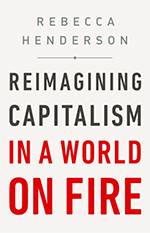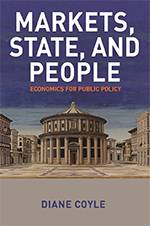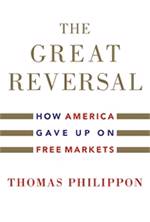OnPoint Subscriber Exclusive

Klaus Schwab
Says More…
This week in Say More, PS talks with Klaus Schwab, Founder and Executive Chairman of the World Economic Forum and the author of Stakeholder Capitalism: A Global Economy that Works for Progress, People and Planet.
Project Syndicate: In 2018, you highlighted the importance of “good-faith dialogue,” or “the ability to see the world through the eyes of other people, especially those with whom we disagree.” Three years later, US President Donald Trump’s supporters were storming the US Capitol to disrupt the certification of an election that they believed – with no evidence – was rigged. What can good-faith dialogue accomplish in such circumstances? Are “citizens’ assemblies,” which you advocated in 2019, up to the task, or should additional actions or mechanisms be considered?
Klaus Schwab: Good-faith dialogue can happen only within certain normative boundaries. In a democracy, those boundaries include respect for the constitution, elected leaders, law enforcement, and the physical integrity and safety of all individuals.
But I do think citizens’ assemblies can play a role in overcoming some of the deep divisions one sees in many countries. Just as a the inclusion of a “jury of one’s peers” can help to mitigate the risk of politicized justice, citizens’ assemblies can imbue public debates over divisive issues with a sense of fairness, thereby acting as a foil to the skepticism and cynicism that is so prevalent today. After all, a citizens’ assembly should, by definition, include representatives from all segments of society. Moreover, they should include a “learning” phase, during which participants gain a deeper understanding of the issue at hand before the discussion begins.
Schwab recommends
We ask all our Say More contributors to tell our readers about a few books that have impressed them recently. Here are Schwab's picks:
-

Reimagining Capitalism in a World on Fire
by Rebecca Henderson
In this well-researched book, Henderson shows how to get from academic reflections on economic problems to real-life solutions. She highlights examples of companies that have taken steps to address issues related to inequality or climate change. Many of these companies are household names that were not previously known for their ESG commitments.
-

Markets, State, and People: Economics for Public Policy
by Diane Coyle
Coyle is a pioneer on the topic of going “beyond GDP” in measuring the prosperity of countries. She recognizes not only that GDP is too narrow a metric to reflect human well-being, but also that it can reward activities that are harmful to long-term prosperity. In this book, Coyle explores how various incentives and policies can influence social and economic outcomes and create a better-functioning welfare state in the long run.
-

The Great Reversal: How America Gave Up on Free Markets
by Thomas Philippon
Philippon examines the economic structure of the US and Western Europe over the last few decades, showing that,while the US had a higher degree of competition and lower prices than Europe in the 1980s, the opposite is true today. He then explores some of the possible causes of this reversal, including market regulation and the influence of money in politics.
From the PS Archive
From 2015
In “The Age of Adaptation,” Schwab advocates a new framework of realistic solutions that promote shared prosperity even as economic systems, governments, security structures, and people's daily lives change at a breakneck pace. Read more.
From 2017
In “What Makes a Great Leader,” Schwab and Kishore Mahbubani praise those, from Angela Merkel to Pope Francis, who embody the qualities the world needs. Read more.
Around the web
On its 50th anniversary, the WEF launched a new Davos Manifesto, a set of ethical principles to guide companies in the age of the Fourth Industrial Revolution. Read the manifesto.
In this Davos Agenda session, Schwab is joined by Gillian R. Tett, Brian T. Moynihan, Chrystia Freeland, Marc Benioff, Kristalina Georgieva, Laurence D. Fink to discuss how to implement stakeholder capitalism. Watch the video.